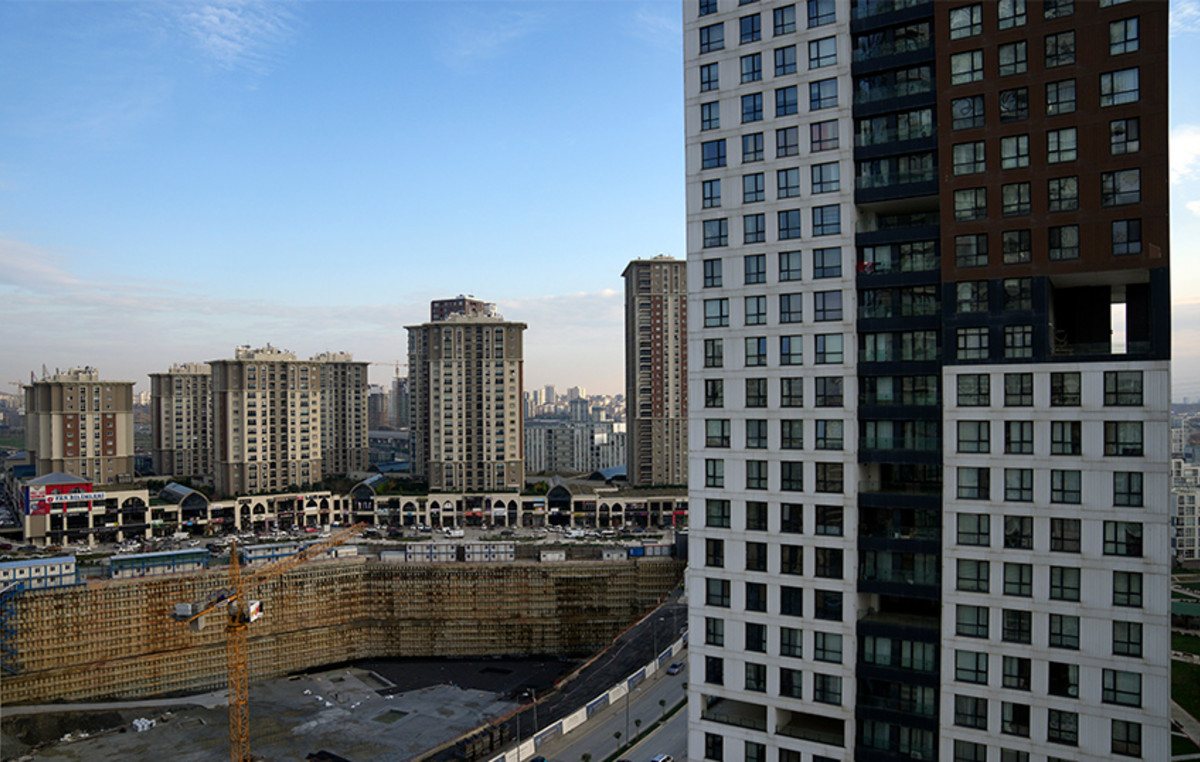China’s new foreign minister, Qin Gang, warned on Tuesday that “conflict and confrontation” with the United States is inevitable if Washington does not change course, issuing a stern and sweeping rebuke of US policies. USA at his first press conference in the new role.
Qin, who until recently was China’s ambassador to the US, has built a reputation for being a careful and talented diplomat abroad.
But he struck a much more combative tone in his first appearance as foreign minister at China’s annual parliamentary meeting, warning of the “catastrophic consequences” of what he described as a “reckless gamble” by Washington in its treatment of its fellow superpowers.
“If the United States does not step on the brakes, but continues to accelerate on the wrong path, no barriers can stop the derailment, and there will certainly be conflict and confrontation,” Qin said on the sidelines of the National People’s Congress in Beijing. “And who will bear the catastrophic consequences?” he added.
At the highly scripted event, Qin set the tone for China’s foreign policy for the coming year and beyond, chastising the US for rising bilateral tensions and championing Beijing’s close partnership with Moscow.
Ties between the world’s two largest economies are at their worst level in decades, and tensions rose further last month after a suspected Chinese spy balloon floated over North America and was shot down by US fighter jets.
On Tuesday, Qin accused the United States of overreacting in its response, which he said had created “a diplomatic crisis that could have been avoided”.
The incident, Qin said, shows that “US perception and views of China are seriously skewed. She regards China as her main rival and biggest geopolitical challenge.”
“The US says it seeks to compete with China, but it does not seek conflict. But in reality, the so-called US ‘competition’ is all-out containment and repression, a zero-sum game of life and death,” he said.
“Contention and repression will not make America great, and the US will not prevent China from rejuvenating,” Qin said.
powers in collision
The great power rivalry between the US and China has intensified in recent years.
Under leader Xi Jinping, China has become increasingly authoritarian at home and assertive abroad, taking a more aggressive approach to wielding influence and countering the West.
And Washington backed down.
Under the Biden administration, the US has strengthened ties with allies and partners to counter Beijing’s growing influence, including in its backyard.
It has also pushed to split from China on emerging technologies, recently banning the export of advanced chips much to the fury of Beijing.
Qin has attacked Washington for its Indo-Pacific strategy, accusing it of forming exclusive blocs to provoke confrontation, advocating decoupling and plotting an “Asia-Pacific version of NATO”.
“The real purpose of the Indo-Pacific strategy is to contain China,” said Qin. “No Cold War should be repeated in Asia, and no Ukraine-style crisis should be repeated in Asia.”
China’s refusal to condemn Russia for its invasion of Ukraine and its growing partnership with Moscow has further strained its relations with the West.
While Beijing has sought to portray itself as a neutral peacemaker, it has also defended its “rock-solid” ties with Russia.
On Tuesday, Qin said the Sino-Russian relationship “does not pose a threat to any country in the world, nor will it suffer interference or discord sown by third parties.”
“The more unstable the world becomes, the more imperative it is for China and Russia to move steadily forward in their relations,” he said.
Qin highlighted the Taiwan issue as the “crunch of the political foundation of Sino-US relations and the first red line that must not be crossed”.
The Chinese Communist Party claims Taiwan’s autonomous democracy as part of its territory, despite never having controlled it, and refuses to rule out using force to “reunify” it with mainland China.
Qin urged the US not to “interfere in China’s internal affairs” and questioned Washington’s different responses to the Ukraine and Taiwan issues.
“Why does the US talk about respecting China’s sovereignty and territorial integrity on the Ukraine issue, but not respecting China’s sovereignty and territorial integrity on the Taiwan issue? Why is the US asking China not to supply weapons to Russia while continuing to sell weapons to Taiwan?” Qin said.
McCarthy visit?
Qin’s comments come amid reports of a possible meeting between Taiwanese President Tsai Ing-wen and US House Speaker Kevin McCarthy in April.
The Financial Times reported on Monday that Tsai could meet McCarthy in California instead of Taiwan, as the US president had initially indicated.
A US State Department spokesperson said on Monday that it was “not aware of any confirmed travel” by the Taiwanese president, and Taiwan’s Ministry of Foreign Affairs said it had no information to share about any possible US visit.
However, regardless of the venue, a face-to-face meeting between Tsai and a senior US politician is sure to draw the ire of Beijing, fueling further tensions in already tense relations across the Taiwan Strait – and between the US and China.
Defying Beijing’s threats of retaliation, McCarthy’s Democratic predecessor, Nancy Pelosi, visited Taipei in August, the first trip by a US president in 25 years.
Beijing responded by staging unprecedented military exercises around Taiwan and cutting key lines of communication with the US.
The Chinese Ministry of Foreign Affairs has since warned McCarthy not to visit Taiwan.
Wen-Ti Sung, a political scientist at the Australian National University’s Taiwan Studies Program, said Tsai’s potential meeting with McCarthy in California is not necessarily a “replacement or demotion.”
Rather, it could be an “add-on”, he said, hinting that McCarthy could always visit Taiwan at a later date.
While Taiwan wants to normalize high-level visits by US officials to Taiwan, it also needs to be seen by its Western partners that it is being a responsible stakeholder in the process.
“Some may think there is a better time than this current moment to pursue another US speaker visit to Taiwan,” Sung said.
A meeting in the US, he added, could serve as “a very visual short-term delivery to show continued US support for Taiwan regardless of the change in party leadership in the legislature”.
Tsai has transited the United States before on her visits to Taipei’s diplomatic allies.
She last visited the US in 2019 and gave a speech in New York – a trip that angered Beijing.
For China, Tsai’s potential meeting with McCarthy will be provocative no matter where it takes place, Sung said.
“Beijing will be very unhappy and will protest vigorously anyway. So I think for them it will be a difference in intensity, but not a difference in type. Beijing is not going to like any high-level exchanges, either in Taiwan or on American soil.”
Source: CNN Brasil
Bruce Belcher is a seasoned author with over 5 years of experience in world news. He writes for online news websites and provides in-depth analysis on the world stock market. Bruce is known for his insightful perspectives and commitment to keeping the public informed.







